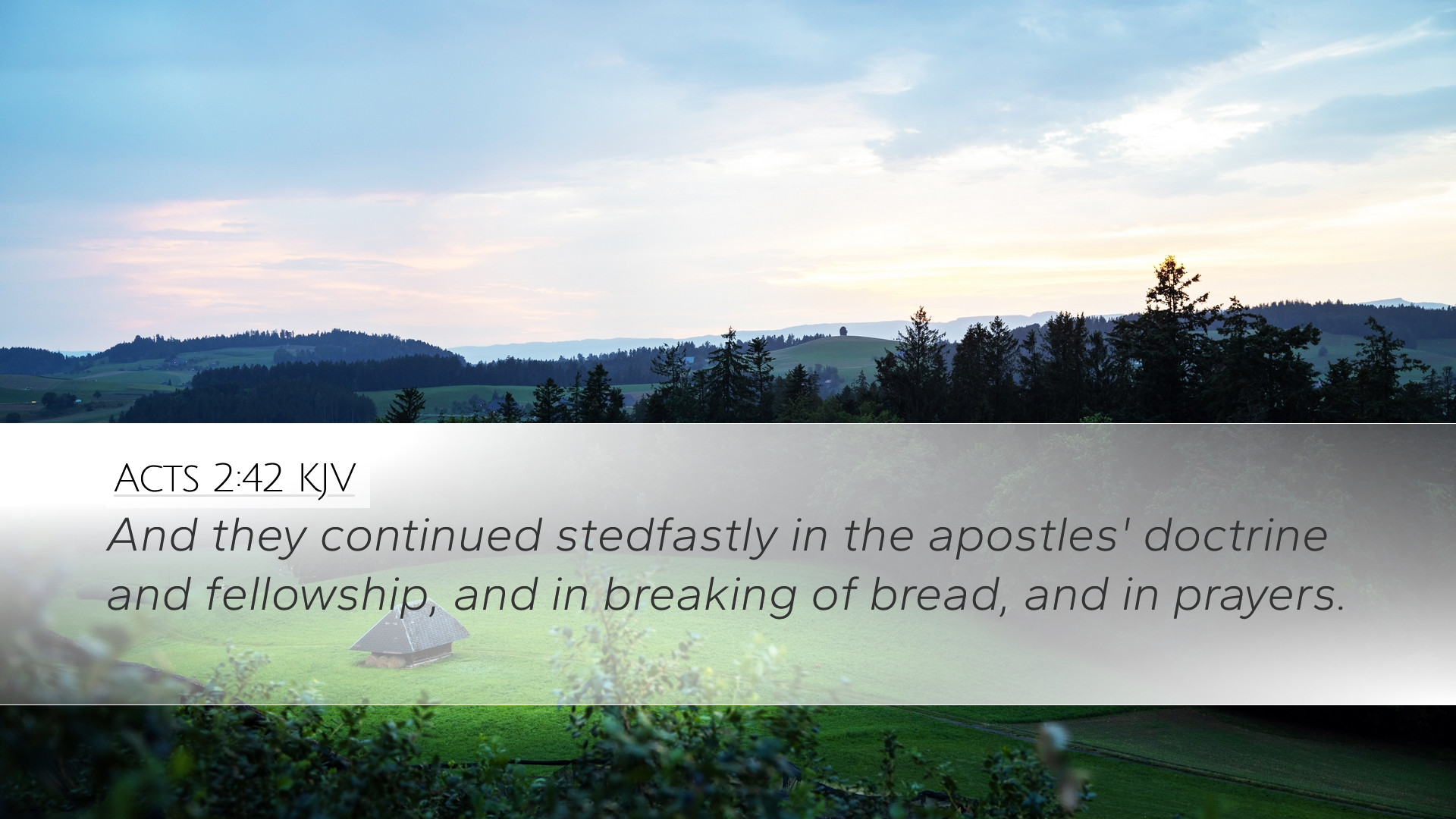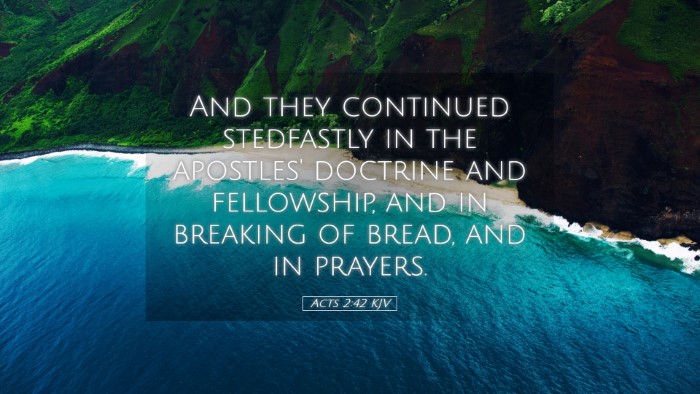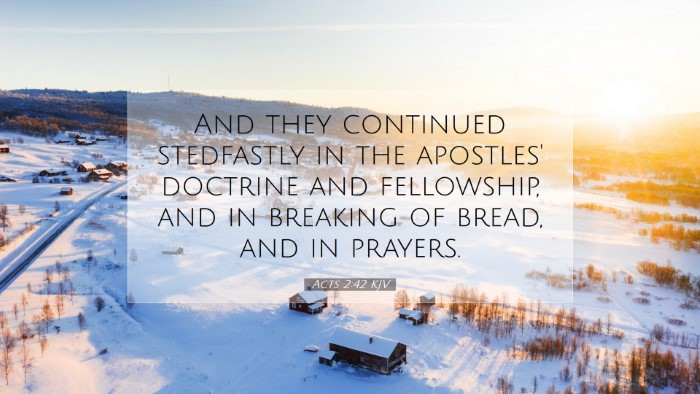Acts 2:42 Commentary
Acts 2:42 states, "And they continued steadfastly in the apostles’ doctrine and fellowship, and in breaking of bread, and in prayers." This verse serves as a pivotal descriptor of the early Church's practices and priorities. It encapsulates the essence of community life among the believers who were filled with the Holy Spirit, following the Day of Pentecost.
1. Devotion to the Apostles’ Doctrine
Matthew Henry emphasizes that the apostles' doctrine refers primarily to the teachings and doctrines that were directly imparted by the apostles, inspired by the Holy Spirit. Their teachings centered around the life, death, and resurrection of Jesus Christ, establishing the fundamental beliefs of Christianity. The early believers were not only hearers of the word but were deeply committed to understanding and living out the teachings imparted to them.
Furthermore, Albert Barnes notes that this "continuing steadfastly" signifies a strong adherence to these teachings. The phrase suggests a resolve to remain united in beliefs and principles, ultimately leading to deeper spiritual growth. In modern contexts, this implies that church communities must uphold sound doctrine and ensure that teaching remains true to biblical foundations.
2. Fellowship Among Believers
The second component highlighted in this verse is “fellowship.” Adam Clarke describes fellowship as not merely a social gathering but a deep sharing of life among believers. They shared their joys, burdens, and resources, fostering an environment of mutual support and encouragement. This relationship among the early Christians was crucial; it fulfilled Jesus' prayer that His followers be one (John 17:21).
This fellowship is rooted in their shared faith and communal life, promoting a sense of belonging. Henry adds that true fellowship also involves the active engagement in each other’s spiritual growth, where believers are called to "bear one another's burdens" (Galatians 6:2). This communal aspect sets a precedent for church activities today to be focused on building relationships that strengthen faith.
3. Breaking of Bread
The “breaking of bread” mentioned in this verse encompasses both the sharing of meals and the observance of the Lord’s Supper. Barnes observes that this practice signifies acknowledgment of Christ’s sacrifice. In sharing meals, believers were reminded of their unity and belonging within the body of Christ.
Clarke further elaborates that this act was a vital component of their worship. The breaking of bread reflects the Acts 20:7 gathering where believers came together for the purpose of communion. By regularly partaking in this sacrament, they were not merely performing a ritual but were affirming their faith in the resurrection power of Christ and the significance of His sacrifice.
4. Commitment to Prayer
The final element highlighted in Acts 2:42 is “prayers.” Reflecting upon prayer, Matthew Henry states that prayer should be a constant and communal practice among believers. The early Church’s devotion to prayer suggests that they recognized their dependence on God for guidance, strength, and divine intervention. Their prayers weren't limited to personal petitions but were likely also collective, focusing on the mission and spiritual well-being of the community.
Clarke points out that persistent prayer among the early believers parallels 1 Thessalonians 5:17, "pray without ceasing." This continuous dialogue with God exemplifies a lifestyle that hinges on faith. The community of believers was saturated with prayer, seeking God’s direction as they engaged in fulfilling the Great Commission.
5. Implications for Today’s Church
Looking at the early Church's dedication as outlined in Acts 2:42, Barnes asserts that modern congregations are called to emulate these practices. A vibrant church today should prioritize sound doctrine, fostering fellowship, engaging in the sacraments, and committing to prayer. Each of these aspects contributes to spiritual formation, community bonding, and holistic worship.
- Doctrine: Teachings must be grounded in Scripture and relevant to the community, allowing transformation through truth.
- Fellowship: Priority should be given to building relationships that encourage accountability and mutual growth among believers.
- Breaking of Bread: Regularly partaking in communion fosters unity and remembrance of Christ’s work.
- Prayer: A culture of prayer must permeate the church, recognizing its power for personal and corporate revival.
Conclusion
In conclusion, Acts 2:42 serves as a model for both individual believers and church communities at large. By embracing the principles found in this verse, believers today can cultivate a rich and dynamic spiritual life. The commitments of the early Church to doctrine, fellowship, breaking of bread, and prayer should inspire, challenge, and equip contemporary believers as they navigate their faith amidst the complexities of the modern world, ensuring that the heart of the Church remains tethered to the life-giving practices exemplified by the apostles.


